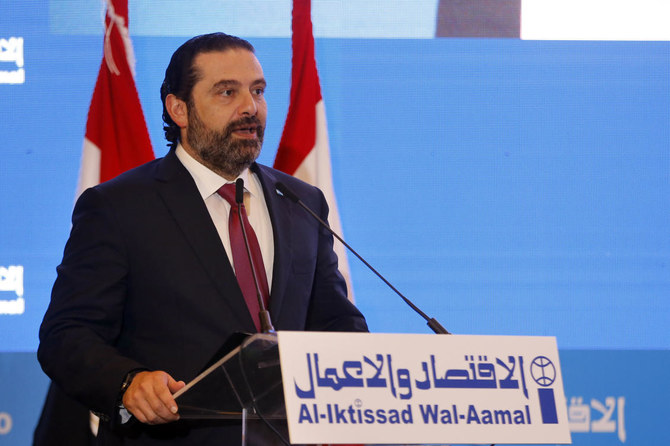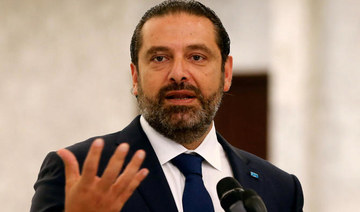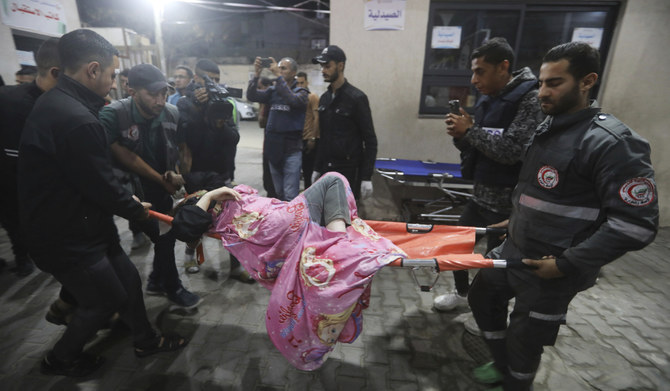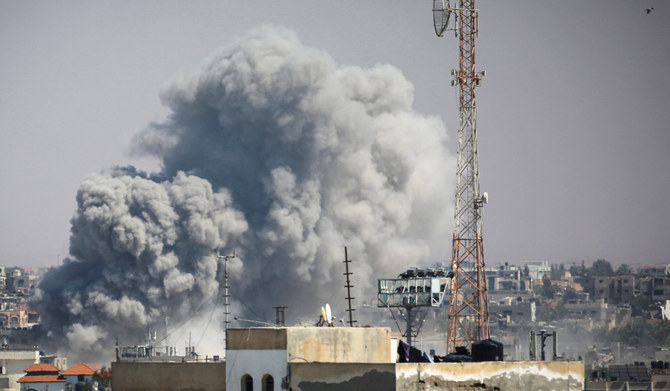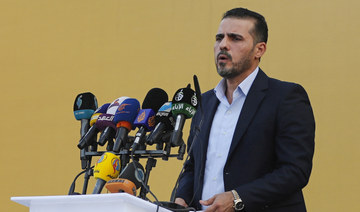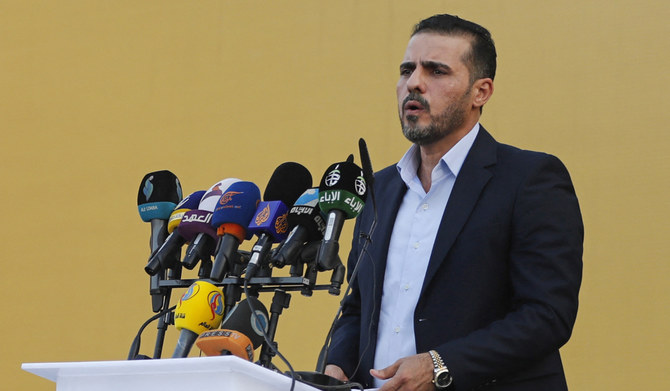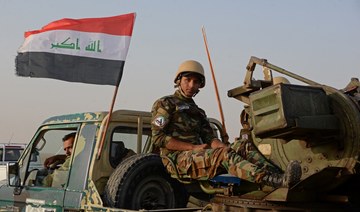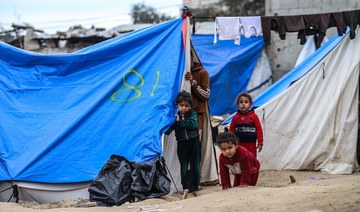BEIRUT: Lebanon’s prime minister said he wants to spare the country from economic collapse, insisting that reforms and austerity measures are needed to resolve the country’s financial turmoil.
Banks are barely functioning in Lebanon, and the country’s stock exchange remains closed.
Central bank workers suspended a strike on Tuesday, but left open the possibility of resuming the walkout on Friday if the government pressed ahead with draft budget proposals that would cut their pay, Reuters reported.
The threat of a central bank strike has had a knock-on effect in the financial sector.
“All of our operations are linked to the Banque du Liban,” Tanal Al-Sabah, from the board of directors of the Association of Banks in Lebanon, told Arab News. “All the normal demand for the dollar and the lira exceeds the daily supply of the branches. If the Banque du Liban does not provide us with liquidity, we won’t be able to meet customers’ requests.”
Banks have set limits on ATM withdrawals over dollar liquidity fears.
The strike, protests and other walkouts are some of the challenges confronting Prime Minister Saad Hariri’s administration as it contends with an austerity budget.
Last week, Hariri told the 27th Arab Economic Forum that Lebanon was committed to carrying out the required economic reforms “despite the existing difficulties.”
Following a meeting Monday night with President Michel Aoun and Parliament Speaker Nabih Berri, Hariri said the country was far from bankruptcy but warned that reforms were needed before it was too late.
“We are still far from bankruptcy, but we should not wait to get to the point where the countries that suffered from bankruptcy got to without carrying out some reform, otherwise we will be lying to the citizens,” he said. “No one wants to touch the rights of military personnel and public servants, and we are studying all means to avoid this, while at the same time reducing the deficit to 8 or 9 percent.”
Hariri expressed his surprise at the strikes, which he described as preemptive. “Is what we are doing terrorism that requires preemptive measures? What we are doing is a proactive action to spare the country economic collapse,” he said. “That is the right path we should have taken, but unfortunately we did not because of political differences. We have a golden opportunity to reach an understanding with the president, the speaker of Parliament and the parties represented in the Council of Ministers to reach a reform budget for the benefit of all Lebanese.”
The goal was to promote growth because it was unacceptable to maintain a growth rate of 1 percent for the past seven years, he added.
He said the law banned state employees from demonstrating or striking, and the law should be respected, especially since the reason for the demonstrations were not known.
“The main problem is that the debt is close to $90 billion, with about $40 billion of this because of electricity. How much interest is owed on these debts,” he said. “This is our collective responsibility and not the responsibility of one particular political team. We recognize the existence of an economic crisis.”
He said nobody should fear change, and encouraged people to support the reforms.
But economic expert Essam Al-Jardi said that the draft 2019 budget revealed a failed state and a corrupt political system.
“The scene is terrible,” he told Arab News. “There is disagreement over all aspects of the reduction of expenditures, except for the reduction of salaries and allowances for public sector employees. They thought this cut was easy and available. The retaliation came from retired military personnel, followed by employees in various sectors, which has a direct impact on public services. As for consensual deals, public rents, state property ... there was no single indication that the government would follow a new course that conforms to laws and tender rules. As for revenues, nothing has been announced about tax evasion, especially fees and smuggling across the Lebanese-Syrian border, which is the size of the budget deficit. The Cabinet did not deal with those hot issues.”
Another economist, Ghazi Wazni, said the government would expedite the budget debate and Parliament would decide its fate.
“What is happening now is unclear,” he told Arab News. “There are some justified protest movements, but some others have nothing to do with the budget. The best step to be taken by the government is to accelerate the debate, and there are items pending until the end of the week, including the measure on the contribution of banks in the budget through raising taxes on interest.”
He said there were also budget items on military pensions and public sector salaries that needed to be considered.



